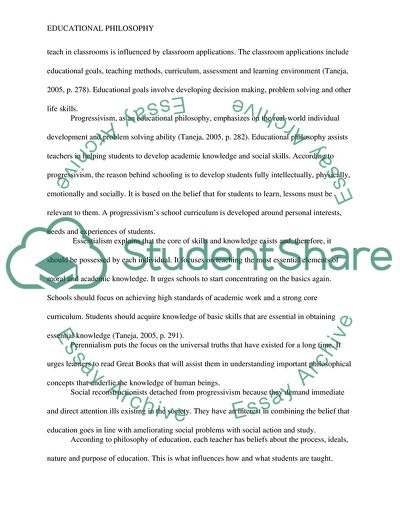Cite this document
(Educational Philosophy Essay Example | Topics and Well Written Essays - 1250 words, n.d.)
Educational Philosophy Essay Example | Topics and Well Written Essays - 1250 words. https://studentshare.org/philosophy/1810219-educational-philosophy
Educational Philosophy Essay Example | Topics and Well Written Essays - 1250 words. https://studentshare.org/philosophy/1810219-educational-philosophy
(Educational Philosophy Essay Example | Topics and Well Written Essays - 1250 Words)
Educational Philosophy Essay Example | Topics and Well Written Essays - 1250 Words. https://studentshare.org/philosophy/1810219-educational-philosophy.
Educational Philosophy Essay Example | Topics and Well Written Essays - 1250 Words. https://studentshare.org/philosophy/1810219-educational-philosophy.
“Educational Philosophy Essay Example | Topics and Well Written Essays - 1250 Words”. https://studentshare.org/philosophy/1810219-educational-philosophy.


